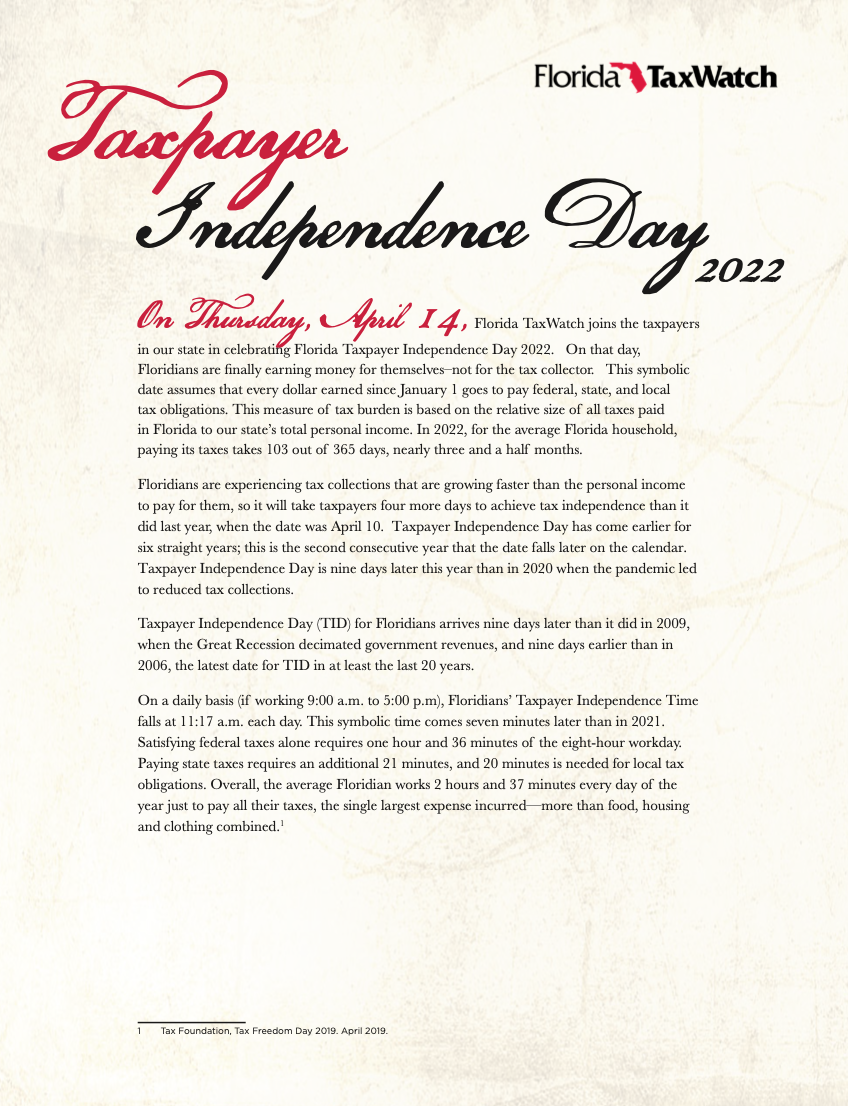2022 Taxpayer Independence Day
 On Thursday, April 14, Florida TaxWatch joins the taxpayers in our state in celebrating Florida Taxpayer Independence Day 2022. On that day, Floridians are finally earning money for themselves–not for the tax collector. This symbolic date assumes that every dollar earned since January 1 goes to pay federal, state, and local tax obligations. This measure of tax burden is based on the relative size of all taxes paid in Florida to our state’s total personal income. In 2022, for the average Florida household, paying its taxes takes 103 out of 365 days, nearly three and a half months.
On Thursday, April 14, Florida TaxWatch joins the taxpayers in our state in celebrating Florida Taxpayer Independence Day 2022. On that day, Floridians are finally earning money for themselves–not for the tax collector. This symbolic date assumes that every dollar earned since January 1 goes to pay federal, state, and local tax obligations. This measure of tax burden is based on the relative size of all taxes paid in Florida to our state’s total personal income. In 2022, for the average Florida household, paying its taxes takes 103 out of 365 days, nearly three and a half months.
Floridians are experiencing tax collections that are growing faster than the personal income to pay for them, so it will take taxpayers four more days to achieve tax independence than it did last year, when the date was April 10. From 2015-2020, Taxpayer Independence Day came earlier on the calendar than the year before, but this is the second consecutive year the date falls later. Independence is coming nine days later this year than in 2020, when the pandemic led to reduced tax collections.
Taxpayer Independence Day (TID) for Floridians arrives nine days later than it did in 2009, when the Great Recession decimated government revenues, and nine days earlier than in 2006, the latest date for TID in at least the last 20 years.
On a daily basis (if working 9:00 a.m. to 5:00 p.m), Floridians’ Taxpayer Independence Time falls at 11:17 a.m. each day. This symbolic time comes seven minutes later than in 2021. Satisfying federal taxes alone requires one hour and 36 minutes of the eight-hour workday. Paying state taxes requires an additional 21 minutes, and 20 minutes is needed for local tax obligations. Overall, the average Floridian works 2 hours and 37 minutes every day of the year just to pay all their taxes, the single largest expense incurred—more than food, housing and clothing combined.